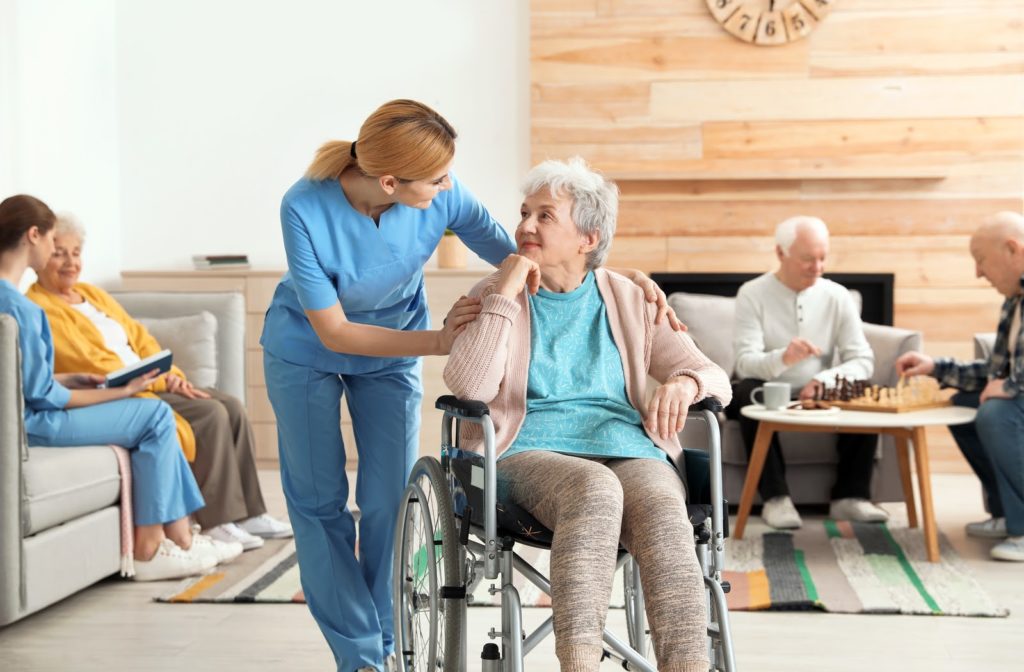The Value of a Comprehensive Program of Care in Assisted Living Settings
In helped living settings, the execution of a thorough program of care is vital for addressing the diverse needs of homeowners. By prioritizing individualized treatment strategies and including family members in the procedure, these programs can significantly improve wellness outcomes and high quality of life.
Comprehending Comprehensive Treatment Programs
As helped living facilities remain to progress, recognizing comprehensive treatment programs ends up being crucial for both residents and their families. Comprehensive care programs are designed to resolve a wide variety of requirements for people living in aided living settings, guaranteeing that each resident gets tailored assistance that reflects their special health conditions and lifestyle preferences.

Furthermore, thorough treatment programs emphasize coordination among different carriers, ensuring smooth communication between caregivers, medical personnel, and relative. This integrated strategy not just improves the top quality of treatment but also cultivates a supportive area atmosphere. Households play an indispensable role in this procedure, joining treatment planning and ongoing conversations to make certain that the citizen's demands are continuously satisfied. Understanding these programs is vital for making informed choices concerning treatment options and taking full advantage of the lifestyle for citizens in assisted living facilities.
Advantages for Citizens

(Dementia Care Charlotte)One main benefit of detailed treatment is the improvement in health end results. Normal tracking and worked with healthcare help in the very early detection and administration of chronic problems, lowering hospitalizations and emergency situation treatments. Furthermore, homeowners take advantage of boosted social engagement, as structured activities and programs cultivate a sense of community, combatting sensations of seclusion and loneliness.
In addition, residents experience raised comfort, knowing that professional assistance is easily offered should they call for support. This guarantee permits them to focus on enjoying their day-to-day tasks and keeping meaningful partnerships.
Role of Caretakers
Caretakers play a crucial role in the well-being of locals in assisted living facilities, guaranteeing that their needs are consulted with compassion and proficiency. They offer as the main point of call for homeowners, offering essential support in day-to-day tasks such as bathing, clothing, and medicine monitoring. Their visibility not just promotes physical health and wellness however additionally improves psychological and social well-being by fostering connections improved trust and understanding.
Along with sustaining daily living tasks, caretakers contribute in keeping track of modifications in locals' health and wellness and habits. They are trained to acknowledge subtle signs of distress or decline, allowing timely treatments that can prevent complications. Their expertise of each citizen's unique history and preferences permits them to provide tailored care, boosting the general lifestyle.
Additionally, caretakers act as advocates for homeowners, communicating their needs and choices to other healthcare experts and family participants. This advocacy is essential in producing an all natural treatment atmosphere that values the self-respect and autonomy of each individual. Ultimately, the dedication and skill of caretakers are essential elements of an extensive program of treatment, underpinning the success of assisted living settings.
Customizing Treatment Plans
While every resident in assisted living has unique demands and choices, customizing treatment plans is vital to providing efficient and tailored support. A one-size-fits-all strategy to care can forget crucial elements of individual health, potentially causing suboptimal results. Assisted Living. An extensive assessment of each resident's health status, personal history, and way of living choices is extremely important in establishing customized treatment methods.
The modification process entails cooperation amongst healthcare experts, caretakers, and relative. By including input from all stakeholders, care strategies can resolve not only medical needs yet likewise emotional and social variables his response that add to overall top quality of life. Normal evaluations and updates to these strategies ensure that they continue to be appropriate as homeowners' conditions and choices develop gradually.
(Dementia Care Charlotte)Additionally, tailored treatment strategies promote a sense of dignity and autonomy among homeowners, cultivating a setting where they really feel valued and appreciated. This customized method not only improves the efficiency of care however additionally enhances the connection between caregivers and citizens, creating an encouraging neighborhood atmosphere. Inevitably, buying individualized care preparation is a cornerstone of supplying top notch assisted living services that meet the diverse needs of citizens.
Enhancing Community Engagement
Structure on the structure of personalized treatment plans, improving community engagement is an essential facet of enhancing the overall experience for homeowners in assisted living (Memory Care). Energetic engagement in neighborhood activities promotes social links, fights feelings of seclusion, and contributes to emotional wellness. Assisting in chances for homeowners to participate in team activities, such as art courses, horticulture, and workout sessions, creates an inclusive atmosphere that advertises communication and cooperation
Furthermore, incorporating homeowners into the broader area with partnerships with neighborhood companies can give improving experiences, such as volunteering and attending cultural events. This not just aids locals really feel valued however additionally enhances ties with the surrounding area, boosting their sense of belonging.
Furthermore, motivating family participation in area activities is important. Assisted Living. Member of the family can work as important support systems, helping to link the gap between homeowners and the community. Routine family members events and open forums for conversation foster openness and collaboration, ensuring that the treatment setting remains receptive to the demands of all stakeholders
Final Thought
To conclude, detailed care programs in assisted living settings play a vital function in maximizing locals' wellness. By attending to clinical, emotional, and social demands, these programs not only boost lifestyle but also promote very early detection of wellness issues, decreasing the chance of hospitalizations. The participation of households in care preparation reinforces support networks, fostering a dignified and autonomous living setting. Ultimately, such programs add significantly to the overall health and wellness results and contentment of citizens.